- Home
- Catherine Coulter
Paradox Page 2
Paradox Read online
Page 2
She grabbed a flashlight, a jacket, and binoculars, pulled on gloves as she ran down her twenty wooden stairs, out onto her long, narrow dock, unlooped her mooring lines, and jumped on board her fifteen-foot runabout. She fired up the outboard engine, carefully steered away from the dock, aimed the boat at the spot where the killer had thrown the other person overboard, and floored it. Within four minutes she was at the edge of a sheet of fog, watching three mallards swim toward her, followed by four more, flapping their wings over the still water, then settling in with their brethren.
She slowly motored in, idled the boat, and searched the area with her binoculars, chanting, “Clear off, clear off.” Miraculously, within minutes, only wisps of fog dotted the water around her. As for the fist-shaker in the rowboat, he was long gone, the offshore fog blanketing his escape.
She began searching for the body, praying the person was only dazed and still alive. The water was smooth, the surface unruffled except for the kick-up waves made by her runabout. She cut the engine, pulled out her cell again, and took pictures, but she knew there wasn’t anything to see. She lined up one shot with the ancient oak tree standing sentinel in front of the abandoned Gatewood mansion on Point Gulliver to document her own location. Only its top branches were visible through the fog. She listened carefully but heard only mallards squawking and the soft lapping of the water against the sides of her boat. She scanned the eastern shore with her binoculars, but the fog was too thick offshore to make out any sign of the rowboat. Through a small pocket, she now saw Point Gulliver clearly, the pebbled beach, and Gatewood, three stories of stark gray stone, forbidding in the early morning light, its wooden dock stretching out into the lake. She saw nothing and no one. She knew the fist-shaker could dock the rowboat at any of the dozens of cottages lining the beach, tie up, and run, or pull the rowboat up onto the sand, hide it in bushes, and then disappear. He couldn’t know she’d seen him. Had both people in the boat been staying in one of the rental cottages?
She called her chief deputy, Charlie Corsica, jerked him out of a deep sleep, and told him what had happened. He and the other four deputies would head to the eastern shore, scour the area for the rowboat, and interview all the cottage tenants. Most cottages along the eastern shore were rentals. Some of the vacationers had to be up, someone had to have seen something, even though it was barely 6 a.m. Maybe when her deputies went door to door, they’d find him. Had anything ever been that easy when she’d been in Vice in Seattle? Not that she could remember.
Even though she knew it was hopeless, Ty turned on the engine and began a slow grid search. She saw nothing until minutes later, when the three boats of the Lake Rescue Team circled her and cut their engines. All four members of the team were lifelong residents of Willicott. Ted Mizera, a local contractor, was big, beefy, and strong as a horse, rumored not to spare the rod on his kids. He’d formed the rescue team long before Ty had accepted the city council’s offer to become the first woman police chief in the town’s long, fairly peaceful history.
Mizera shouted, “Chief, Marla said you saw someone get whacked with an oar from your house? You see anything, like a body, since you got out here?”
“If my visual memory serves, I’m near the spot,” she called back, “but so far no sign of a body. After the killer hit the victim on the head with an oar, he dumped the body overboard and rowed back to the eastern shore, toward Point Gulliver. I couldn’t see anything because of all of the fog. I haven’t seen any sign of a body. Did the killer have a brick tied around his victim’s waist? I don’t know, I was too far away.”
Harlette Hensen, a retired nurse, grandmother to six hell-raisers, and owner of Slumber House B&B, shook her bobbed gray head. “You think the killer changed his mind, pulled the man out of the water?”
That was Harlette, always the optimist, wanting to think the best of her fellow man. Ty said, “Sorry, Harlette, I’d have seen it if that had happened. I saw him fist-pump after the victim went overboard, which says to me he rowed his victim out onto the lake to murder him and dump his body. It was premeditated.” She shook her head. “That fist pump. I couldn’t believe it.”
Ted snorted. “Harlette, you wouldn’t recognize the devil even if he perched on your rocker. Ty, I think you’re right. The victim’s probably weighted down. Or maybe held by the water reeds.”
“The reeds aren’t that thick this far out, Ted, too deep,” Congo Bliss said. “I’m betting on a brick tied around the victim’s waist to keep him under.” Congo was the owner of Bliss’s Diner, going on twenty-five years now, known far and wide for his meatloaf and garlic mashed potatoes. He was tall, fit, good-looking, going on fifty, and as proud of his physique as his meatloaf. Congo was on his fourth wife and his fourth rat terrier, all former terriers choosing to depart with the wives. More important, he was the group’s designated diver, and he was already dressed in a partial wetsuit. He spat over the side. “Water’s about twenty-five feet deep here. I’ll do some free dives, see if I can find him before you call Hanger to drag the lake.”
Congo pulled on his mask and fins and made four dives. No sign of the murdered man, but he brought up a present for Harlette and tossed it to her. Harlette caught it, let out a yell, then cursed. “Not funny, Congo.” She held up the skull he’d thrown to her. “This sure isn’t your guy, Chief. I wonder how old this skull is. Could be fifty years, who knows? I haven’t heard of any local disappearing, ever. Some long-ago tourist, you think?”
Ty pulled her boat closer and took the skull from Harlette, turned it over in her hands. “No bullet hole, no crushed bones, and three teeth left. I’ll take the skull to Dr. Staunton later. Right now we need to find the man I saw murdered an hour ago.”
She handed the skull to Albert Sharp, owner of Sharp’s Sporting Goods, with Harlette in her boat. He was the designated provider of any necessary water equipment and once a champion swimmer. Albert looked like he wanted to hurl, but he knew he couldn’t because he’d never live it down. He swallowed half a dozen times. Nobody said anything. He carefully wrapped the skull in his daughter’s blue polka-dot beach towel and laid it on the seat, wiped his hands on his pants, and attempted a manly smile.
“You said it was a rowboat,” Harlette said, shading her hand over her eyes as she searched the water. “Did you recognize it, Chief? Was it one of Bick’s rentals?”
“I was a good ways away, but it could have been. Yes, of course it was—it was painted an odd green, sort of an acid green.”
Congo nodded. “That’s it. I remember Bick got that green paint on sale a decade ago, long before your time, Chief. Everyone in town had a good laugh.” He looked down at his watch. “Sorry, Chief, I can’t do any more dives. I gotta get back to the diner. Willie’s the only cook there. He can’t fry an egg worth spit and he’s always burning the toast.”
Ty thanked them all, sent them home, and set everything in motion. She called Hanger Lewis over in Haggersville, set him up to drag this part of the lake in his ancient pontoon boat with its big dragging net. She called Charlie to check in. Nothing yet, no one had seen anything, no sign of one of Bick’s acid-green rowboats and no sign of anyone who didn’t belong there. She said, “No surprise, though I really did hope someone might have seen something. Okay, Charlie, keep the others scouting the east shore. Hanger will be here in about an hour. You go out with Harlette and Hanger, she’ll show you guys the exact spot. And Charlie, be on the lookout for loose bones. Congo found a skull when he dived to look for the man I saw shoved overboard.”
2
* * *
Ty got back to her cottage ten minutes later, grabbed a slice of toast, smeared on some strawberry jam, and ate it while she drove to downtown Willicott. She played over and over what she’d seen. What burned her was that she’d been nothing but a bystander, unable to do anything, only watch the murder unfold like a movie on the screen. Ty wondered what the odds were of a chief of police actually witnessing a murder. She prayed Charlie and Hanger would find the body whe
n they dragged the lake.
As if a missing body and a skull weren’t enough to keep her running, tomorrow was the first day of the yearly Willicott Book Festival. Despite everything, she had to make sure it went off without incident. She admired the banners already flying over High Ginger Street, snapping in the morning breeze, announcing the festival on Saturday and Sunday. Signs were everywhere hyping books, authors, attractions, signing venues, workshops, and panels. A gigantic banner in the middle of it all advertised Osborn’s BBQ, the best barbecue in the area, honey from Osborn’s own bees jazzing up the sauce.
The stores lining High Ginger Street were buffed and shined, showcasing their best goods behind sparkling glass windows. Kismet’s Lingerie had enjoyed its yearly paint job, white with killer red trim to match a daring red satin teddy on display surrounded by six artfully arranged colorful thongs.
Most of the publishers, agents, and the sixty or so visiting authors had already arrived with mountains of luggage, their entourages, and signing pens. Marv Spaleny, president of the Willicott Festival Committee—the WFC—and owner of Spaleny’s Best Books, had informed the city council and the Willicott Weekly Informer they were projecting at least seven thousand visitors this year, coming from as far away as Seattle. Visitors to the festival had begun arriving in Willicott earlier in the week in a nice steady flow, with few complaints and no gridlock, all smooth sailing so far. Since this area was a tourist destination, there was sufficient housing for the visitors—motels, B&Bs, three high-end resorts—many booked months in advance. In addition, some of the area locals rented out rooms, which meant the surrounding towns would enjoy the annual economic windfall along with Willicott. The festival committee even hired on more water taxis to ferry visitors staying on the east side of the lake.
Ty had brought on twelve volunteer deputies to smooth any troubled waters and to help the other volunteers answer visitor questions. She’d had only six extra deputies on hand last year, and that hadn’t worked out—too many unexpected kerfuffles. She still shuddered at the mayhem that had erupted when Ponsy Glade, owner of Glade’s Gas, had gotten into it with a reader who’d cut in a long book-signing line. Ponsy actually belted him in the chops, the line of readers cheering him on.
Everything was set, all the schedules were nailed down, everyone knew where he was to be when, and if a visitor had a question, there were dozens of volunteers to help. She decided she and Willicott were ready. She could focus on finding the body in the lake.
Ty stopped at Dr. Staunton’s office, carrying the skull still wrapped in the polka-dot beach towel under her arm. Dr. Morgan Staunton was a transplant from New York City, the borough of Manhattan, she’d announced upon arrival. She’d been a general practitioner here in Willicott for ten years now, had learned to water-ski and fish, and served as the local volunteer medical examiner, a service she didn’t provide often. Everyone called her Dr. Scooter, after her Vespa, a common sight in Willicott.
Dr. Staunton wasn’t in her office yet, so Ty left the skull with her nurse, Pammie Clappe, eighty years old and still going strong. Pammie opened the towel, looked down at the skull with complete indifference, wrapped it up again, tagged it, and set it in the inbox tray. She said in her scratchy smoker’s voice, “Kismet would sure like that skull to be her mother-in-law. Have you seen those thong things she displayed in her window? I’m thinking I might get the purple one. You all ready for the festival, Ty?”
“All’s good. I saw Kismet’s mother-in-law yesterday,” Ty said, “tossing a Frisbee, so Kismet is out of luck.”
“A pity. I don’t much like her, either. This is exciting, Ty, one of my favorite horror authors is coming.”
Ty said over her shoulder as she left, “Purple’d be a cool color on you, Pammie, go for it.” She headed to Bick’s Bait and Rental on South Pier, wondering if Pammie read horror novels in bed at night. Talk about gruesome nightmares.
It was eight thirty in the morning, the sun was bright, and the temperature would hit the high eighties today. Lots of business for Bick and his rental rowboats, but not for a couple of hours, until he opened at nine thirty. His store always smelled like Lysol, to kill the fishy odors, Harlette had told her, but fish and Lysol weren’t a happy combination, not that Bick seemed to care. He bought the Lysol wholesale by the case. Bick was an energetic seventy-five, with tufts of white hair sticking out of his ears, nose, and eyebrows and a love of Jim Beam. He was standing behind his counter, eating a corn dog loaded with mustard and coated with sweet relish, a Diet Coke at his elbow, his daily breakfast, since his seriously vegan wife didn’t work in the shop in the mornings and so wasn’t around to throw the hot dog to the walleye in the lake. “Hey, Chief, what’s up?”
Ty told him what had happened, described the rowboat she’d seen.
“What? You actually think it was one of my boats?” He sounded outraged, like she’d accused one of his children of dealing meth to the local teenagers.
“Can’t be one hundred percent sure, Bick, since the fog was so thick, but I think the rowboat was acid green like the paint you use. Did anyone turn in a boat in the past couple of hours?”
“Don’t know, but I tell everyone where the boats go and they can bring ’em back at three a.m. for all I care.”
“Let’s check names against boats,” Ty said.
It didn’t take long. Rental boat number six, the Green Gaiter, scheduled to be returned at 6 a.m. this morning, wasn’t parked in its slot beside rowboat number five, the Green Lantern.
The name of the renter of the Green Gaiter was Sala Porto of Washington, D.C.
“Yeah, I remember him,” Bick said. He ate the last bite of his corn dog after dipping it into the small bowl of mustard Ty knew he would wash and put away before Mrs. Looney came in. “He rented the Gaiter for a week, fishing, lolling around with his girlfriend, drinking beer and swimming, that sort of thing, not here for the book festival. He said he had to be back in Washington today, so he’d return the Green Gaiter no later than six o’clock this morning.
“I told him his name was real interesting, I mean, how often do you hear the name Sala Porto? He smiled, said he heard that a lot, but he wasn’t a gangsta, didn’t hail from Sicily. He was an FBI agent, and the name was good because the bad guys thought he might be Mafia and that scared them lots more than a federal cop with a vanilla name and all those rules and regulations to worry about. You think he might be the guy you saw get hit over the head and thrown into the lake?”
“I don’t know, Bick. He actually told you he was an FBI agent?”
“Yep, he showed me his ID. ‘Creds,’ he called it.”
“Was anyone with him? This girlfriend?”
“I never saw the girlfriend, only this FBI agent, Sala Porto.” Bick showed her his signature.
“Credit card?”
“Yep, let me find it for you.” Bick scrounged in a small steel box, flipped through piles off credit card receipts, and pulled one up, waved it at her.
Ty studied the receipt. American Express for $240. His signature was bold—that was the first word that popped into her mind. More than bold, dominant.
“He used his own pen,” Bick said.
Black ink, of course, to go with that strong signature. Ty left Bick cleaning up a spill of mustard and walked to her white Silverado in the pier parking lot, shining bright under the morning sun. She leaned against her truck door, pulled her hat down to cut the glare, and pulled out her cell. She didn’t have any contacts at the Hoover Building, so she called the main number and asked for Special Agent Sala Porto. After being passed around for ten minutes, Ty ended up with a summer intern named Mindy who said she’d heard Agent Porto was with his girlfriend, Octavia—didn’t know her last name—on vacation, and who wanted to know? Ty put on her best cop voice, low and hard, and finally ended up transferred to the Criminal Division, where Agent Porto was assigned, according to Mindy. Agent Sala Porto’s unit chief was on vacation, and no one else wanted to talk to her. She was eventuall
y passed to Executive Assistant Director James Maitland’s office. She grinned into the phone at that coup. She’d managed to get to a top dog. Ty used her most intimidating voice when she identified herself and asked to speak to Executive Assistant Director Maitland, stating it was a matter of great urgency. The woman said without pause, “All I’ve got to say, Chief Christie, is that this had better be good or I might be visiting you in your own jail cell.”
A man’s deep, impatient voice came on the line. “Maitland here. Goldy said this was urgent. Who are you, and what do you want?”
Maitland sounded like her kind of cop: no nonsense, straightforward, hard as nails. Ty identified herself as the police chief of Willicott, Maryland, then described what she’d seen three hours before and what she was doing about it. “The murdered man could be an FBI agent, Sala Porto. Or Porto could be the murderer. Or neither. I need your help.”
Maitland snapped out questions until she was wrung dry. She wouldn’t have been surprised if he’d wanted to know about her birthmark (a lovely strawberry on her left hip), her marital status (still thankfully single after two broken engagements), and if he did ask her age, she’d have no problem telling this man she was turning twenty-nine on the fourth of November.
Jimmy Maitland was silent a moment. “All right, Chief Christie, here’s what we’re going to do.”

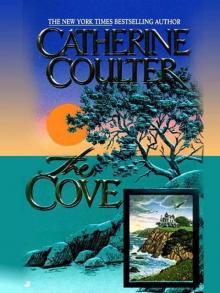 The Cove
The Cove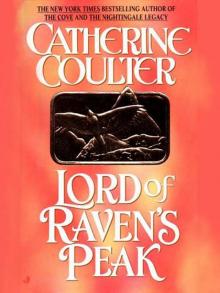 Lord of Raven's Peak
Lord of Raven's Peak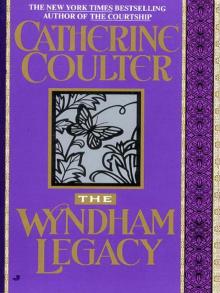 The Wyndham Legacy
The Wyndham Legacy The Strange Visitation at Wolffe Hall
The Strange Visitation at Wolffe Hall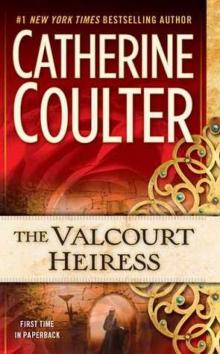 The Valcourt Heiress
The Valcourt Heiress Bombshell
Bombshell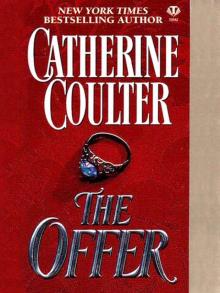 The Offer
The Offer The Edge
The Edge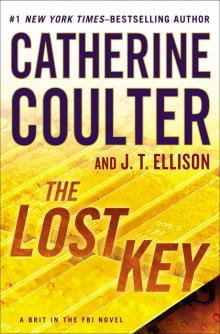 The Lost Key
The Lost Key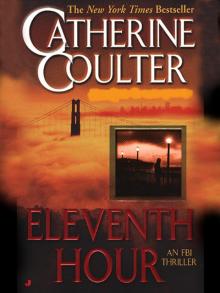 Eleventh Hour
Eleventh Hour Blindside
Blindside Devil's Daughter
Devil's Daughter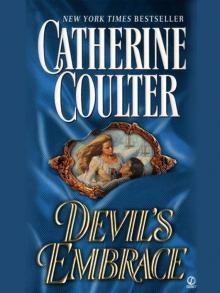 Devil's Embrace
Devil's Embrace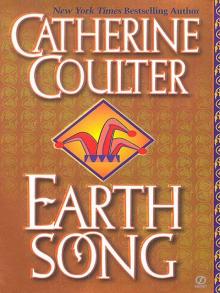 Earth Song
Earth Song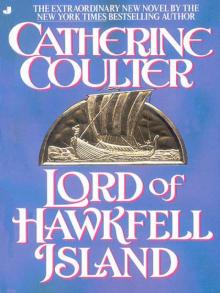 Lord of Hawkfell Island
Lord of Hawkfell Island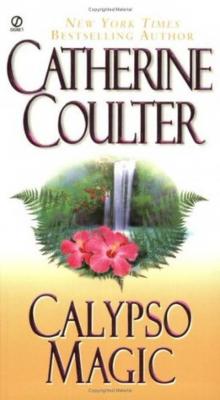 Calypso Magic
Calypso Magic Lyon's Gate
Lyon's Gate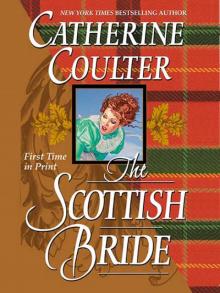 The Scottish Bride
The Scottish Bride Midsummer Magic
Midsummer Magic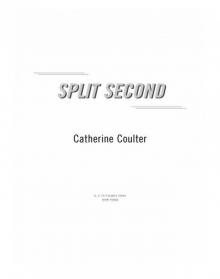 Split Second
Split Second Enigma
Enigma Blowout
Blowout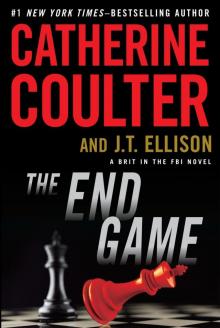 The End Game
The End Game Double Take
Double Take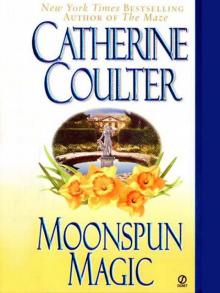 Moonspun Magic
Moonspun Magic The Courtship
The Courtship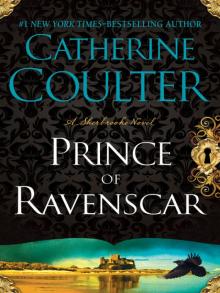 Prince of Ravenscar
Prince of Ravenscar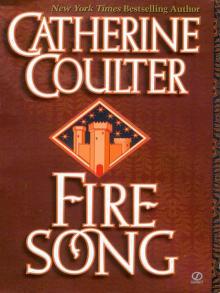 Fire Song
Fire Song Wizard's Daughter
Wizard's Daughter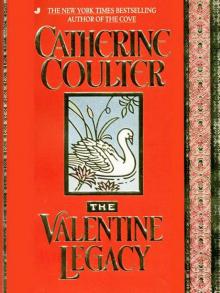 The Valentine Legacy
The Valentine Legacy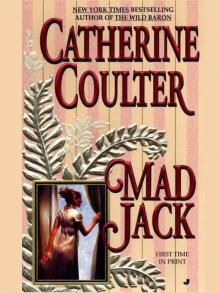 Mad Jack
Mad Jack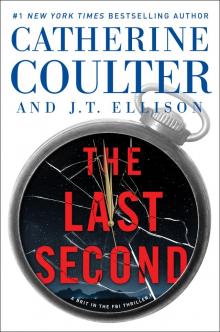 The Last Second
The Last Second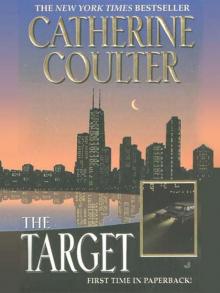 The Target
The Target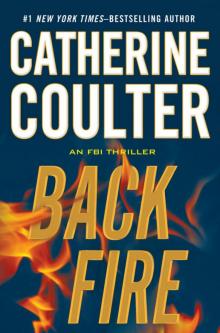 Backfire
Backfire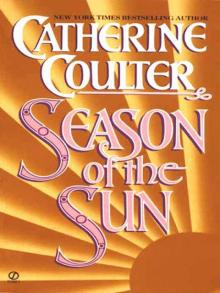 Season of the Sun
Season of the Sun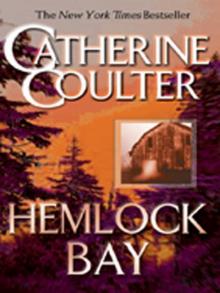 Hemlock Bay
Hemlock Bay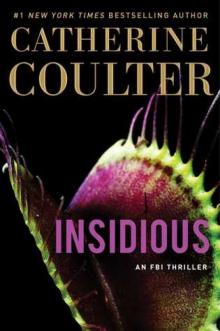 Insidious
Insidious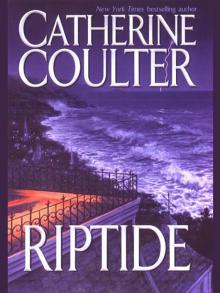 Riptide
Riptide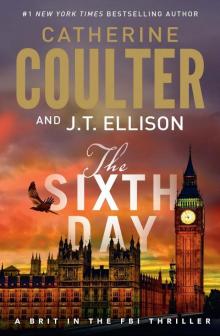 The Sixth Day
The Sixth Day Secret Song
Secret Song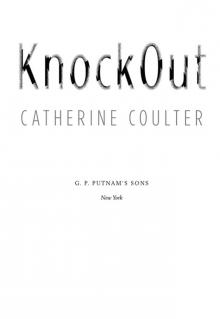 KnockOut
KnockOut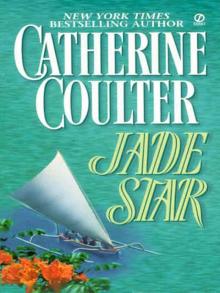 Jade Star
Jade Star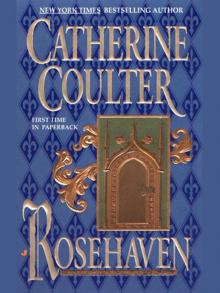 Rosehaven
Rosehaven The Hellion Bride
The Hellion Bride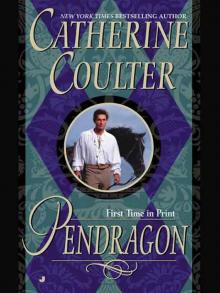 Pendragon
Pendragon Vortex
Vortex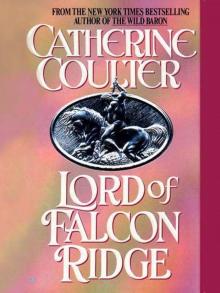 Lord of Falcon Ridge
Lord of Falcon Ridge The Nightingale Legacy
The Nightingale Legacy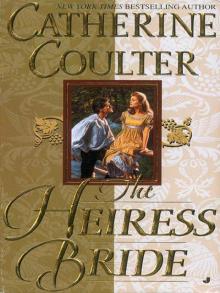 The Heiress Bride
The Heiress Bride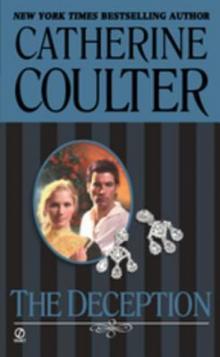 The Deception
The Deception The Maze
The Maze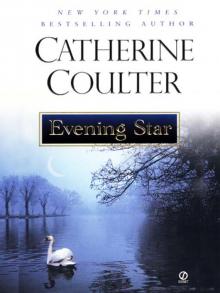 Evening Star
Evening Star Wild Star
Wild Star The Final Cut
The Final Cut Paradox
Paradox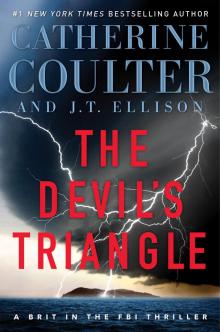 The Devil's Triangle
The Devil's Triangle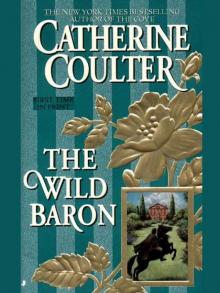 The Wild Baron
The Wild Baron Point Blank
Point Blank Labyrinth
Labyrinth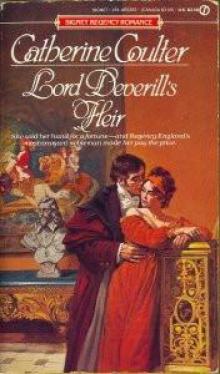 Lord Deverill's Heir
Lord Deverill's Heir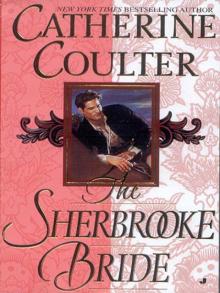 The Sherbrooke Bride
The Sherbrooke Bride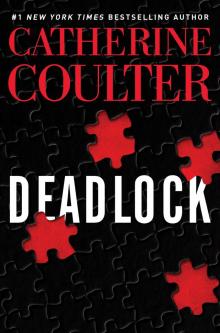 Deadlock
Deadlock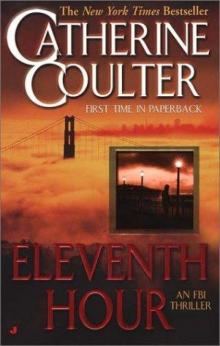 Eleventh Hour f-7
Eleventh Hour f-7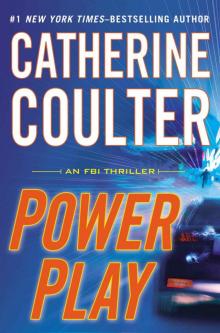 Power Play (An FBI Thriller)
Power Play (An FBI Thriller)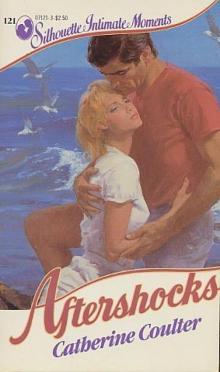 Aftershocks
Aftershocks Sherbrooke Twins tb-8
Sherbrooke Twins tb-8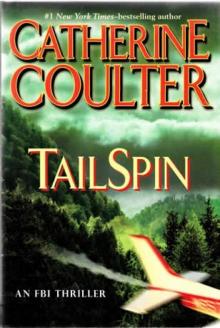 Tail Spin ft-12
Tail Spin ft-12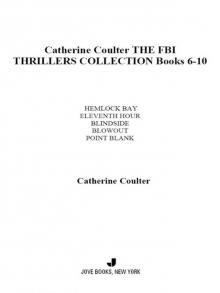 The FBI Thrillers Collection
The FBI Thrillers Collection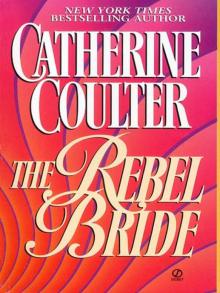 The Rebel Bride
The Rebel Bride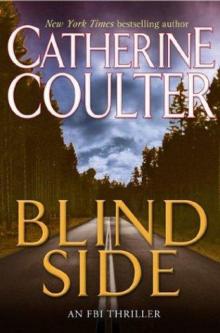 Blindside f-8
Blindside f-8 Lyons Gate tb-9
Lyons Gate tb-9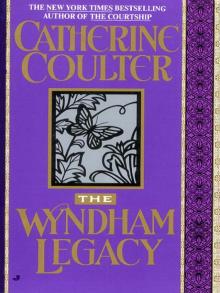 Wyndham Legacy
Wyndham Legacy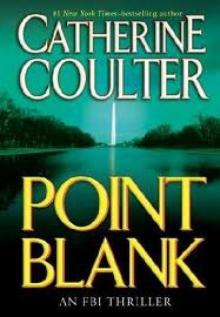 Point Blank f-10
Point Blank f-10 The Prince of Ravenscar
The Prince of Ravenscar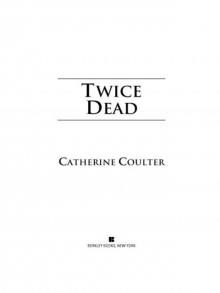 Twice Dead
Twice Dead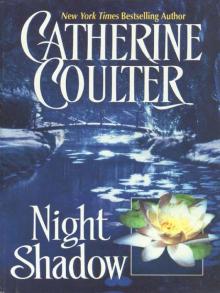 Night Shadow
Night Shadow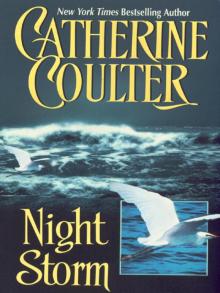 Night Storm
Night Storm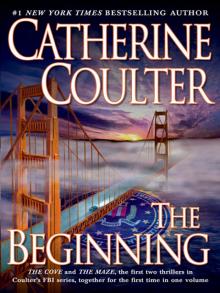 The Beginning
The Beginning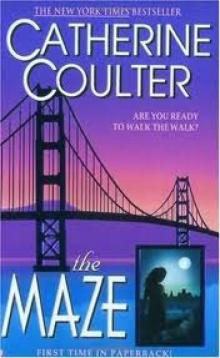 The Maze ft-2
The Maze ft-2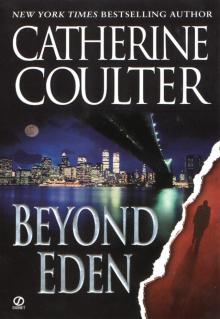 Beyond Eden
Beyond Eden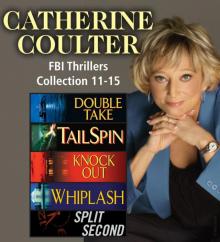 The FBI Thrillers Collection: Vol 11-15
The FBI Thrillers Collection: Vol 11-15 FALSE PRETENSES
FALSE PRETENSES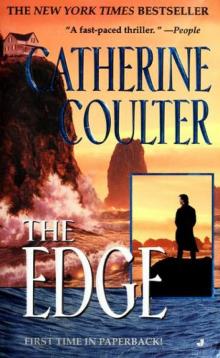 The Edge f-4
The Edge f-4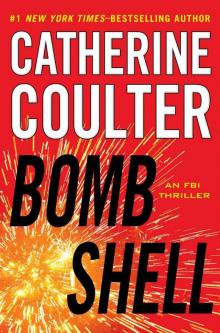 Bombshell (AN FBI THRILLER)
Bombshell (AN FBI THRILLER) The Ancient Spirits of Sedgwick House (Grayson Sherbrooke's Otherworldly Adventures Book 3)
The Ancient Spirits of Sedgwick House (Grayson Sherbrooke's Otherworldly Adventures Book 3)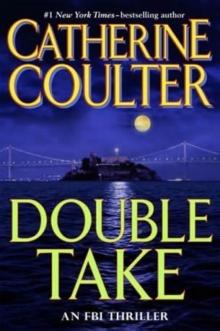 Double Take ft-11
Double Take ft-11 The Heir
The Heir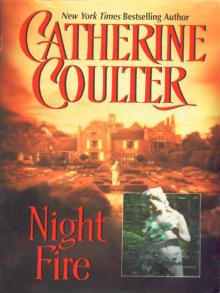 Night Fire
Night Fire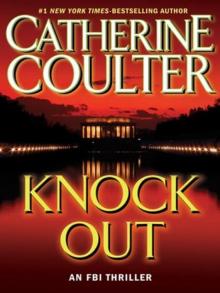 KnockOut ft-13
KnockOut ft-13 Hemlock Bay f-6
Hemlock Bay f-6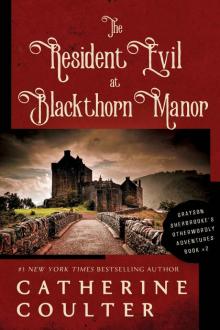 The Resident Evil at Blackthorn Manor (Kindle Single) (Grayson Sherbrooke's Otherworldly Adventures Book 2)
The Resident Evil at Blackthorn Manor (Kindle Single) (Grayson Sherbrooke's Otherworldly Adventures Book 2)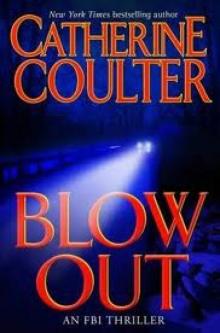 Blowout ft-9
Blowout ft-9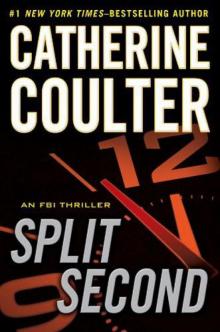 Split Second f-15
Split Second f-15 The Sherbrooke Series Novels 1-5
The Sherbrooke Series Novels 1-5 Impulse
Impulse Paradox (An FBI Thriller Book 22)
Paradox (An FBI Thriller Book 22)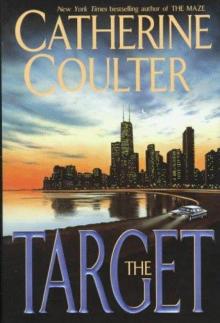 The Target f-3
The Target f-3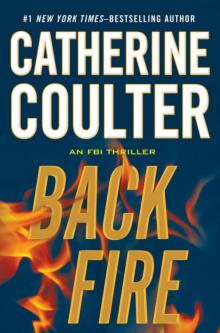 Backfire fst-16
Backfire fst-16 Born To Be Wild
Born To Be Wild Wizards Daughter tb-10
Wizards Daughter tb-10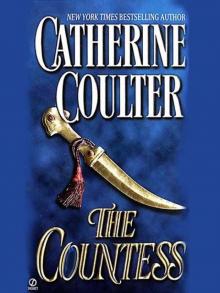 The Countess
The Countess